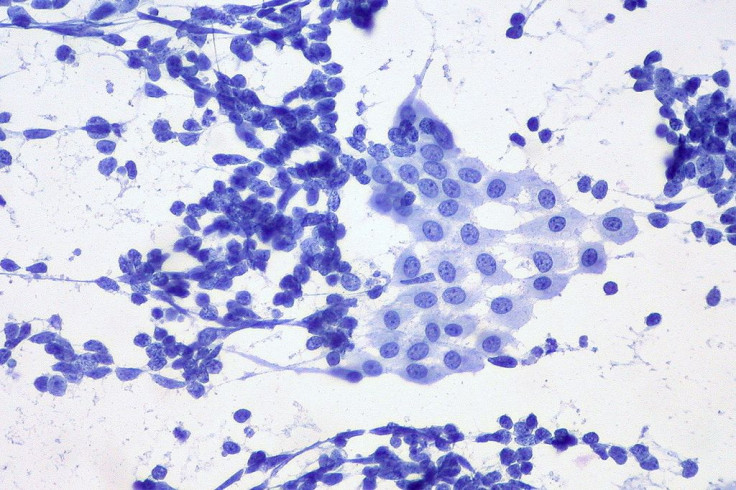World Cancer Day 2015: Lung Cancer Surpasses Breast Cancer As Developed Nations' Most Fatal

Breast cancer is no longer the most fatal form of cancer among women in developed countries, a new study finds. That distinction now goes to lung cancer, whose recent ascent can be credited to modern luxuries typically found in more developed countries, such as cigarette smoking and sedentary lifestyles.
Some 14.1 million new cancer cases and 8.2 million cancer deaths occurred in 2012 worldwide, the data show. According to the Centers for Disease Control and Prevention, 19.3 million new cases will develop over the next decade. In spite of lung cancer’s shift, along with similar increases in colorectal cancer rates, many other cancer rates have held steady. This finding offered a measure of hope to the researchers, as it suggests the typical vaccine regimens and cancer prevention efforts remain the best practices.
"A substantial proportion of the worldwide burden of cancer can be prevented through the application of existing cancer control knowledge, including tobacco control, vaccination (for liver and cervical cancers), early detection, and the promotion of physical activity and healthy dietary patterns," they wrote. Scientists from the American Cancer Society and the International Agency for Research on Cancer collaborated on the report.
Unfortunately, many of the cancers that historically have been absent in developing countries are beginning to appear. Western influence may be to blame, particularly as highly processed diets make their way into countries that are normally reliant on fresh fruits, vegetables, and meats. Reversing this trend isn’t a simple fix, the researchers contend.
"A coordinated and intensified response from all sectors of society, including governments, civil society, the private sector, and individuals, is required to seize control of the growing burden of cancer," they wrote.
The global cancer burden is great, not to mention disproportionately funded. More than half of new cancer cases and about two-thirds of cancer deaths happen in developing countries, yet just five percent of resources are spent there, the CDC states. Even if public health officials wanted to help, they wouldn’t know who needs it. Nearly all of North America falls into some sort of cancer registry, which tracks incidence data. Meanwhile, only two percent of Africa is covered.
Stateside, lung cancer rates may be slated to decline in the coming years. Smoking rates in the U.S. have been falling consistently since 1964, when Surgeon General Dr. Luther Terry publicly announced the link between lung cancer, heart disease, and smoking. Since Terry’s warning, rates have fallen from 42.4 percent to 18.1 percent.
Looking forward, experts first argue for increased awareness about the myriad causes of cancer, especially those cancers which are on the rise. Healthy lifestyles, composed of regular exercise and clean eating, significantly reduce a person’s risk for nearly all forms of cancer and disease. However, the causes of prostate cancer and blood cancer largely remain a mystery. For people already stricken with these and other aggressive forms, the researchers call for improved palliative care. If science can’t help rid the person of disease, at least they can ease the suffering.
Source: American Cancer Society Global Cancer Statistics. CA Cancer Journal for Clinicians. 2015.



























